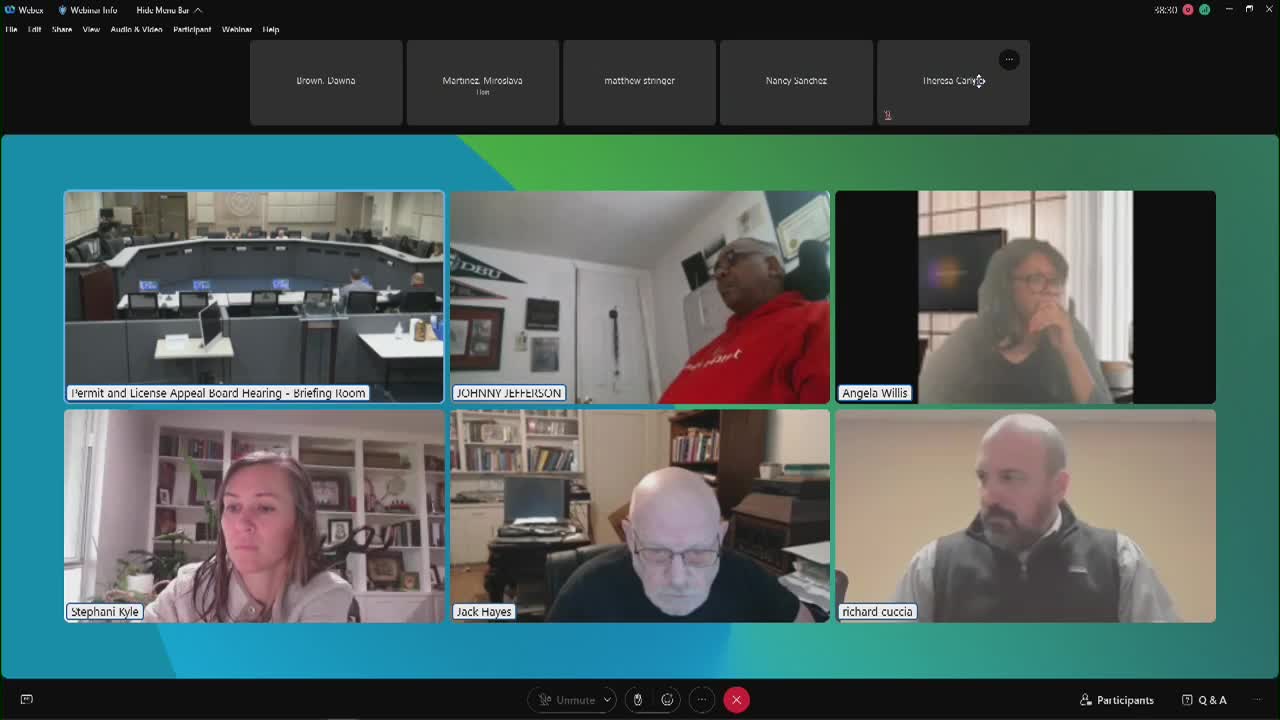Dallas board upholds habitual-nuisance designation for Manor Hospitality Corp motel
Get AI-powered insights, summaries, and transcripts
Subscribe
Summary
The Permit and License Appeal Board for the City of Dallas on Jan. 16, 2025, voted unanimously to uphold the director of code compliance’s final determination that a motel owned by Manor Hospitality Corp is a habitual nuisance property.
The Permit and License Appeal Board for the City of Dallas on Jan. 16, 2025, voted unanimously to uphold the director of code compliance’s final determination that a motel owned by Manor Hospitality Corp is a habitual nuisance property. The motion to affirm the director’s decision passed after presentations from the city and the property owner’s counsel and testimony from a city code inspector.
The board’s decision sustains a designation under chapter 27 of the Dallas City Code that applies when a property is the site of multiple code citations within a 365-day period and the owner has not taken reasonable steps to abate violations. The designation allows the city to require a posted sign identifying the property as a habitual nuisance property, to impose conditions on how the property operates and to assess fees tied to additional enforcement and monitoring.
In opening the city’s case, Assistant City Attorney Matthew Stringer told the board that community prosecution had documented repeated inspections and citations, and that the property had received multiple code citations over the relevant period. Stringer said the record shows the owner “failed to take reasonable steps to abate the code violations” and that the city had issued inspection reports and notices dating back to March 29, 2023. Stringer said the city observed subsequent citations on Feb. 29, March 7, May 29 and Aug. 13, 2024 and that a presumption notice was sent Aug. 28, 2024.
City code inspector Robert Gonzalez, called by the city, testified about the property’s condition and said he had inspected the site "about 25" times since the community-prosecution assignment. Gonzalez described what he testified were dilapidated conditions in some units, exposed wiring and plumbing hazards, and evidence he said suggested some units were being used for extended residential purposes rather than short motel stays. When asked whether the photos the city offered showed conditions remained uncorrected at the time of the hearing, Gonzalez said he "cannot" confirm they had not been fixed because he had not been back to inspect every item since some photos were taken in August 2024.
Appellant counsel Luke Bechera argued the owner had submitted extensive documentary evidence — described in his exhibits 1–18 — showing maintenance logs, receipts, camera upgrades and remodeling work intended to abate violations. Bechera said those exhibits showed the owner had implemented monitoring, security and maintenance measures and had spent money to address problems. He told the board, "My client has satisfied every any evidentiary burden it may have," and urged the panel to reverse the director’s designation.
Board members questioned both sides about the timing and content of the exhibits, the absence of clear before-and-after photographic sequences, the frequency and staffing of on-site security and whether individual violations had been contested or resolved in municipal court. Several board members said the record before the board focused on the property’s condition prior to the director’s decision and whether the owner rebutted the statutory presumption.
After closing statements by Bechera and Stringer, Board Member Quint moved to affirm the director of code compliance’s decision; Board Member Hayes seconded the motion. The motion passed unanimously. The board’s action affirms the director’s finding that the presumptions described in section 27-48 of the Dallas City Code were satisfied and leaves in place the city’s authorities to impose conditions, a placard requirement and fees related to the habitual-nuisance designation.
Assistant City Attorney Stringer noted in closing that upholding the designation “does require the property to post a sign identifying it as an habitual property and and pay a fee,” and said the city’s goal was to secure full, sustained compliance and safer conditions for guests and the surrounding neighborhood.
The board record shows prior administrative steps in the case: a March 29, 2023 notice listing code concerns; subsequent inspections through 2024; a court/accord meeting on Oct. 1, 2024 at which the owner presented evidence the city found insufficient; a final designation notice issued Oct. 31, 2024; and the Jan. 16, 2025 appeal hearing. The designation does not itself close the business; the city may work with the owner to define conditions the property must meet and monitor compliance.
